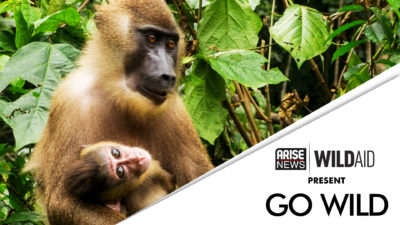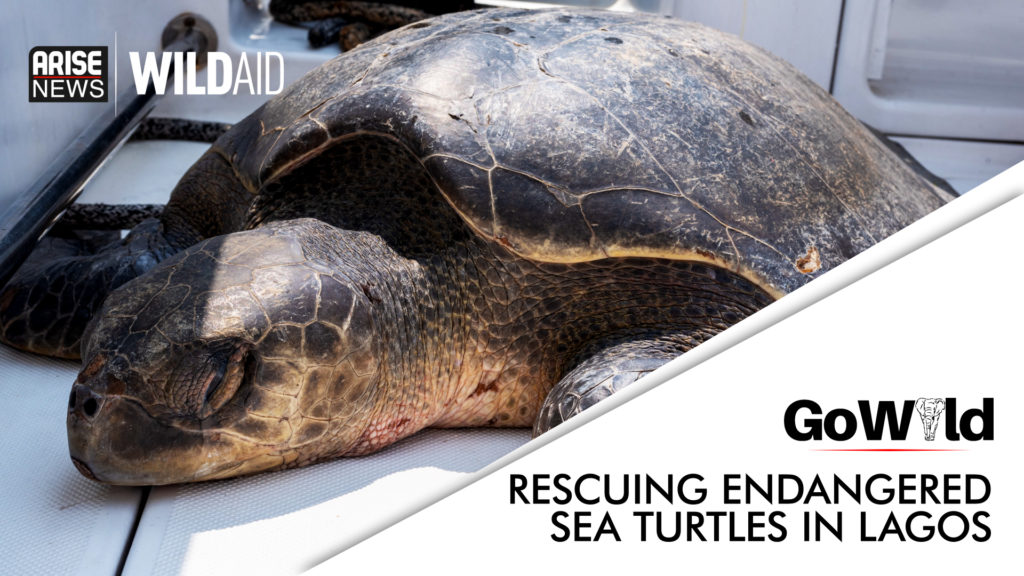
Nigeria has one of the most vibrant media landscapes in Africa, with hundreds of TV networks, radio stations, newspapers, magazines and online platforms producing rich content that reaches millions across the country. Cable offerings have also become popular, especially among urban residents.
Yet, despite the lively media scene and plethora of news sources, wildlife-focused content is rare. Some TV networks and radio stations have experimented with environmental programs, covering subjects from global warming to waste pollution and food insecurity. In print newsrooms, the environment desk covers not just wildlife issues but also real estate, air quality, waste management, property and housing.
The result is that when the audience receives information about wildlife and the illegal wildlife trade in Nigeria, the majority of the time it is linked to press conferences announcing seizures of illegal wildlife products at the ports or awareness-raising activities by environment nonprofits and government agencies on World Environmental Days to. Therefore, while there is an effort to talk about the plight of Nigeria’s declining wildlife population and habitat loss, there isn’t sufficient coverage of wildlife issues in the media to spur public support for local conservation initiatives.
In addition, many Nigerians are not aware of wildlife laws, the impact of a flourishing trade in bushmeat in urban centers on wildlife populations, Nigeria’s role as a transit hub for the trafficking of illegal wildlife products, or the fact that wildlife species in Nigeria are on the verge of being wiped out.
WildAid wants to change this situation and bring more wildlife-focused shows and programming to millions of Nigerians using every form of media available to Nigerians in cities, towns and villages.
A new partnership between WildAid and ARISE News has taken on the challenge of raising awareness about the state of Nigeria’s wildlife and their habitat and hope to inspire millions of Nigerians to care about wildlife and support local conservation efforts. ARISE News is an international TV news channel focused on Africa with a base in Lagos, Nigeria’s commercial city with an estimated 20 million residents.
Under the partnership, which is the first of its kind in Nigeria between an environmental nonprofit and a major TV channel, we are combining forces to produce a weekly docuseries, Go Wild that has started producing weekly episodes over the next two years.
ARISE News Environmental Correspondent, Laila Johnson-Salami, a leading Nigerian journalist and media personality, hosts the docuseries every Sunday on ARISE News — Channels 416 and 44 on MultiChoice Group’s DStv and GOtv channels reaching millions of audiences across several African countries and on 519 on Sky UK and Freeview channel 136.
In the U.S., you can watch ARISE News on the BET Her (formerly Centric) and on the Hot bird platform, which transmits to Europe, North Africa and the Middle East. You can also stream the series on ARISE News’ website and its social media channels.
Laila has been navigating forests, wildlife sanctuaries and going undercover in illegal wildlife markets across Nigeria to bring exciting stories to millions of Nigerians.
Laila is also appearing on popular shows featured on ARISE News to offer more context and nuance to the audience.
Go Wild launched on ARISE News platforms on Oct. 4, 2021. It airs on The Morning Show, ARISE News’ primetime breakfast magazine.
The first season features 12 episodes covering issues such as rescuing endangered sea turtles in Lagos, addressing bushmeat consumption in large cities, explaining the connections between wildlife and the increased risk of zoonotic diseases, and the role of Nigeria in the illegal wildlife trade, particularly pangolin scales. ARISE News will also air episodes highlighting the incredible work of Nigerian rangers, the plight of Critically Endangered Cross River Gorillas, loopholes in Nigeria’s wildlife laws and illegal logging. Other episodes lined up to be aired include those focusing on pangolins, elephants, lions and chimpanzees.


Why is the Go Wild series important and timely?
Nigeria has historically been home to abundant rainforest with a wide variety of iconic species in large numbers, but today Nigeria has fewer than 50 lions, 100 gorillas, 500 elephants and between up to 2,300 chimpanzees. We are in a race to save them and their habitats or lose them forever.
Nigeria has emerged as a major transit hub for illegal wildlife products in West Africa, particularly elephant ivory and pangolin scales that are smuggled from the rest of the continent. Traders and middlemen involved in the commercial bushmeat trade are now being co-opted to work with poachers and organized criminal networks dealing in the illegal wildlife trade. Between 2016 – 2019, over half of the pangolin scales seized globally came from Nigeria.
With its large population and pan-African reach through music, media and the film industry, Nigeria has the potential to be a regional leader on wildlife issues. We are hopeful that working with ARISE News can promote local efforts to conserve wildlife and inspire a deep sense of pride among Nigerians to protect and preserve wildlife for broader economic and environmental gains.
We are thrilled to partner with ARISE News to effectively communicate to the public what is no longer just a conservation problem with few consequences, but a national concern that can greatly impact cultures, economies and the environment.
Watch the Go Wild series on the WildAid Africa YouTube channel here.
Stay in touch and get the latest WildAid updates.
SIGN UPAbout WildAid
WildAid is a non-profit organization with a mission to protect wildlife from illegal trade and other imminent threats. While most wildlife conservation groups focus on protecting animals from poaching, WildAid primarily works to reduce global consumption of wildlife products such as elephant ivory, rhino horn and shark fin soup. With an unrivaled portfolio of celebrity ambassadors and a global network of media partners, WildAid leverages more than $308 million in annual pro-bono media support with a simple message: When the Buying Stops, the Killing Can Too.
Journalists on deadline may email communications@wildaid.org